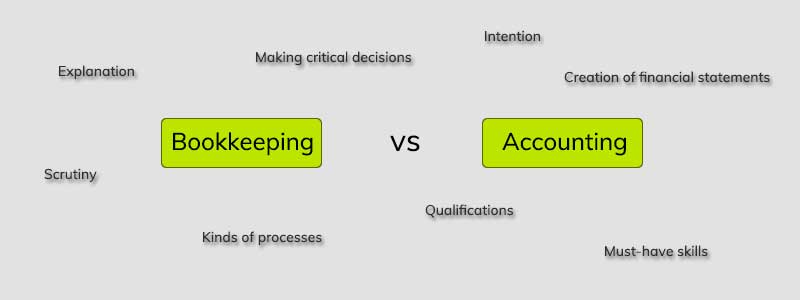



The double-entry bookkeeping process is way too tedious as it jots down account details of complex and big-budget companies. For penny accounts, or where transactions do not happen on a regular basis, the single entry system of recording is considered to be the best. Individuals' entries ought to settle down with bank account details. Payment details are recorded accurately, and notes on bookkeeping and accountancy are made from time to time. Single entry bookkeeping is precisely done for small businesses that do not entail arduous transactions. There are two different types of bookkeeping. Since now we know what bookkeeping and accounting are, let us move on to the types of bookkeeping. A bookkeeper is someone who is employed by a company, whose job is to essentially record any payments (say, loan payments, payments to suppliers, etc.), monitor asset depreciation, and generation of financial reports. Prior to this electronic era, account bookkeeping for any business was usually handwritten. Proper account bookkeeping could assist you with tracking key operations, financial decisions, and good investments. The term 'accuracy' plays a notable role in bookkeeping. Bookkeeping or account bookkeeping is a process that involves systematic organizing and recording of any financial transactions taking place in a company so that it could be totally reliable while tracking information at any time later.


 0 kommentar(er)
0 kommentar(er)
